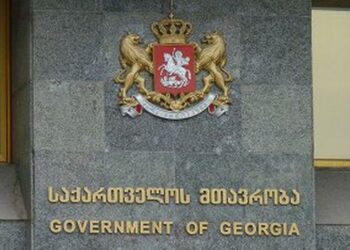In this exclusive interview, Giorgi Gakharia, Leader of the ‘For Georgia’ Party and Former Prime Minister of Georgia, offers his insights on Georgia’s position in the changing geopolitical landscape. He discusses the country’s unique advantages, the risks of losing its Western orientation, and the consequences of failing to capitalize on its strategic position between East and West.
How do you assess Georgia’s geopolitical role in today’s dynamic international environment? What is our competitive advantage, and what can we offer the world?
Georgia’s geopolitical relevance and strategic importance depend on one key factor—our institutional proximity to the European Union. This is essential. Our institutional, political, and alliance-based connection to the EU is what sets us apart from other regional players like Armenia and Azerbaijan.
We must understand that Georgia’s geopolitical role is not an abstract idea, but a practical matter. Take the Baku-Tbilisi-Ceyhan (BTC) oil pipeline. Had Georgia not been seen as a stable, Western-oriented democracy, the pipeline could have easily bypassed us, finding a shorter route. The same principle applies today.
As the eastern gateway to the Black Sea—not just for the Caucasus, but also for Central Asia—our relevance is entirely dependent on our ability to integrate institutionally, politically, and economically with the European and Western framework. If we fail to do so, we are just another South Caucasus country. Our strategic role will be no different from Azerbaijan’s, which, geographically speaking, is even better positioned for the North-South corridor.
Right now, alternative routes are already being discussed, such as the Zangezur Corridor. If Georgia does not maintain its Western orientation and reliability as a transit hub, we will be sidelined.
So, what exactly is Georgia’s unique advantage in this regional competition?
Our competitive advantage is not in our natural resources—we do not have vast gas or oil reserves, nor do we have a large domestic market. Georgia’s real strength has always been our institutional and political proximity to the West.
This means the credibility of our institutions, our democratic governance, and our ability to uphold the rule of law. These factors have historically made Georgia attractive to investors and international partners. That is why major trade and infrastructure projects connecting East and West—whether Chinese, Anglo-Saxon, or otherwise—become relevant to us only if we are institutionally integrated into the European economic space.
This is not just about losing out on global projects—it’s about losing our regional influence altogether
Without this, we are merely a transit country with no added value. The key is our ability to provide legal, state-level, and institutional guarantees for these massive trade and financial flows. Otherwise, why would global players rely on Georgia when they have alternative routes?
If we move away from the West, Georgia’s geopolitical importance diminishes tenfold. We become a purely local player in the South Caucasus with no broader regional significance.
Considering China’s growing influence in Central Asia and the decline of Russia’s dominance, do you see an opportunity for Georgia to benefit from these shifts?
Yes, Georgia has a geographical advantage. But geography alone is not enough. The question is: can we capitalize on this?
The more unreliable Georgia becomes—politically unstable, institutionally weak, and undemocratic—the more incentive there is for global powers to create alternative corridors that bypass us. This process has already begun, and, unfortunately, our current government is accelerating it with its short-sighted policies.
Instead of balancing regional interests strategically, Georgia is pushing away its most reliable partner—the West. Meanwhile, Turkey, Azerbaijan, and Central Asian states are actively working on alternative routes such as the Zangezur Corridor, which could significantly reduce our role as a transit hub.
Major trade and infrastructure projects connecting East and West become relevant to us only if we are institutionally integrated into the European economic space
The technology and infrastructure exist today to make these alternatives viable—be it road, rail, energy transmission, or digital fiber networks. If Georgia had played a balanced geopolitical game, we could have remained a trusted partner for all major players. Instead, we are now actively colliding with the West, which will have long-term consequences.
If Georgia continues on its current path, what are the potential long-term consequences?
We will be confined to a narrow South Caucasus context instead of playing a broader regional role. And in that scenario, we will not be able to withstand competition from our neighbors.
Both Azerbaijan and Armenia will secure their own strategic functions. Azerbaijan, with its energy resources, is already far ahead in economic terms. Armenia, through diplomatic maneuvering, is carving out its own geopolitical niche.
But Georgia? Under this government, we are losing our strategic advantage. This is not just about losing out on global projects—it’s about losing our regional influence altogether.
At some point, the current government will realize the damage they have done. But by then, where will Georgia be? That is the real question.
Interview by Liza Zhvania














